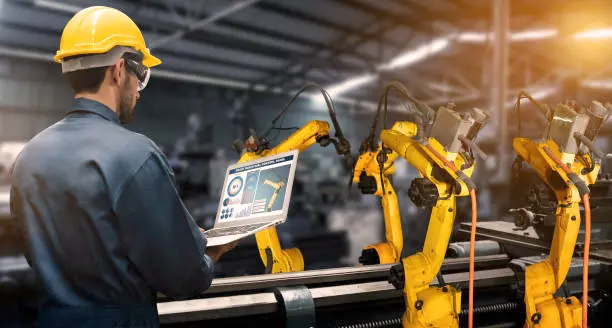
The Impact of Virtual Reality on Training and Development
- Admin
Virtual Reality (VR) technology has emerged as a powerful tool for training and development across various industries, revolutionizing the way organizations onboard employees, conduct simulations, and enhance skill acquisition. In this article, we'll explore the profound impact of VR on training and development, examining its applications, benefits, and future implications.
VR technology immerses users in a simulated environment, enabling realistic and interactive experiences that mimic real-world scenarios. In the realm of training and development, VR offers unparalleled opportunities for hands-on learning, allowing employees to practice skills and procedures in a safe and controlled environment. From technical training in manufacturing and healthcare to soft skills development in customer service and leadership, VR simulations provide an effective and engaging learning experience.
One of the key benefits of VR-based training is its ability to improve retention and learning outcomes. Studies have shown that immersive experiences in VR lead to higher levels of engagement and knowledge retention compared to traditional training methods. By providing learners with realistic scenarios and immediate feedback, VR simulations enhance comprehension, memory recall, and skill transfer, resulting in more effective learning outcomes.
Moreover, VR training offers scalability and cost-efficiency, particularly for organizations with dispersed teams or complex training needs. Instead of conducting in-person training sessions or setting up physical training facilities, organizations can deliver VR-based training modules remotely, eliminating travel costs, logistical challenges, and time constraints associated with traditional training methods. This scalability enables organizations to train large numbers of employees simultaneously and standardize training programs across geographically diverse locations.
Additionally, VR training enhances safety and risk management by allowing employees to practice hazardous or high-risk tasks in a virtual environment. From emergency response training to equipment operation in industrial settings, VR simulations enable employees to develop critical skills and emergency procedures without exposing themselves to real-world dangers. This not only improves employee safety but also reduces the likelihood of accidents and costly errors in the workplace.
Furthermore, VR technology facilitates experiential learning and soft skills development by enabling immersive storytelling and role-playing scenarios. Employees can engage in realistic simulations of customer interactions, conflict resolution scenarios, or leadership challenges, allowing them to develop empathy, communication skills, and emotional intelligence in a supportive and interactive environment. This experiential learning approach fosters deeper engagement and skill mastery, leading to more confident and competent employees.
Looking ahead, the future of VR in training and development is promising, with advancements in technology, content development, and accessibility driving widespread adoption across industries. As VR hardware becomes more affordable and content creation tools become more user-friendly, organizations of all sizes can leverage VR to deliver high-quality training experiences and drive continuous learning and development initiatives.
In conclusion, VR technology is transforming the landscape of training and development, offering immersive, scalable, and cost-effective solutions for skill acquisition and performance improvement. By embracing VR-based training programs, organizations can enhance employee engagement, improve learning outcomes, and mitigate risks, ultimately driving business success in the digital age.
Ryodo Automation recognizes the transformative potential of VR in training and development and offers a range of solutions to support organizations in their VR adoption journey. From custom VR content development to VR training platform integration, Ryodo Automation empowers organizations to harness the power of VR for effective learning and skill development across industries.
In conclusion, VR technology is revolutionizing training and development, offering immersive, scalable, and cost-effective solutions for skill acquisition and performance improvement. By embracing VR-based training programs, organizations can enhance employee engagement, improve learning outcomes, and drive business success in the digital age. Embrace the future of VR in training and development with Ryodo Automation and unlock new possibilities for organizational growth and innovation.
